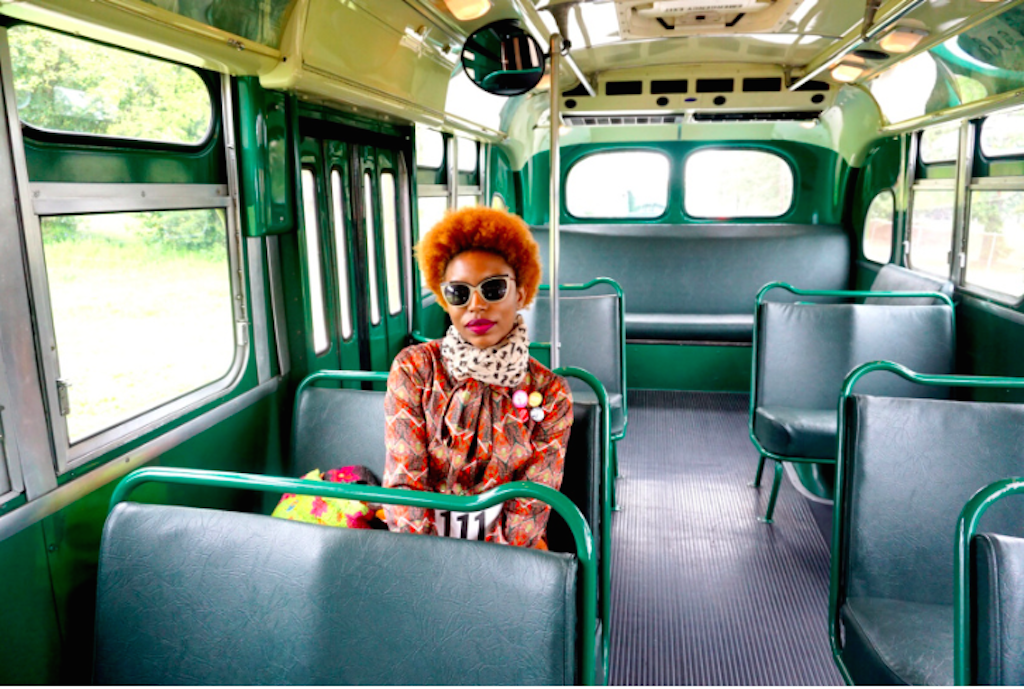One plane. Two feet. Three breaths. Four different thoughts flickering back and forth like a light bulb spiraling out of energy. Step after step after step definitions of purpose circle my brain as I move from point A to B, trepidation to resolve. I had been tapped by the State of Alabama and the National Park Service to partake in their 50th Anniversary Walking Classroom where 300 people from across all U.S. territories, including Puerto Rico, would congregate and reenact the historic Selma to Montgomery March for voting rights – 54 miles for five days straight.
We would learn and document firsthand experiences from some of the original foot soldiers, like Dr. Bernard Lafayette and Dr. Frederick D. Reese who walked alongside Dr. Martin Luther King Jr. in 1965, and I was afraid of debasing a legacy that made relatively cold, still gravel appear like shiny rose petals beneath my feet. This was holy ground, and I was sullied in this matrimony of thought as freedom of choice is something that I’ve tasted all my life, albeit through muddled semantics of progress or airplane ticket escapes to distant lands far from the reality of home. I processed the acceptance message longer than imagined, and I started to think about the idea of birthright trips and what this means for travelers in the African Diaspora, particularly black Americans. What exactly is a return to history when you feel like a disappearing vantage point spiraling through a dark tunnel with unalienable answers to truths that only lead to more questions?
Moving on to my morning ritual of wiping my face clean to greet each day, I splashed water across my eyes as I always did, but when I looked up in the mirror, I didn’t see my own reflection but rather that of my mother’s and grandmother’s. I knew that I didn’t have a choice in the matter, that I was going to Alabama regardless of whether I was prepared or not. The bad weather matched my pensive mood as I started my journey, and I ended up getting stranded and camping out at two different airports due to snowy conditions, which left me just short of the pivotal Edmund Pettus Bridge crossing in Selma marking Day 1. I recalled being very upset about missing out on this moment, but in retrospect, I’m a bit relieved that I started in the thick of the trail on Day 2. The journey from Selma to Montgomery is often abridged in conversation to Bloody Sunday (and rightfully so), but the recovery process that kept the foot soldiers moving forward after this grime day is for the most part, lightly emphasized.

So, what is home? Home is built on the foundation that security will be abundant through love, care and trust. It is built on the belief that no struggles can be too great to afford you some rest, even if for a little while. Home is also where your dreams are protected under the watchful eyes of the night and tucked away to see brighter days. Home starts when you begin to connect with others and share experiences under the same roof regardless of how close or far apart. Most of all, home feels less strange when you’re able to trace the lines that made it possible for you to revolve around the sun to greet each year’s passing. The biggest lesson I learned about home while on the road from Selma to Montgomery was gaining a renewed sense of dignity and motivation – emotions I did not necessarily expect to walk away with.
Venturing to the South was not only my version of a birthright trip to understand a connection between identity and displacement but also my noting a wealth of character in my heritage – one that can only truly be measured by patterns of resistance and perseverance. It’s often easier to focus on what hasn’t worked within our system rather than take moments to celebrate strides that have been made towards progress along the way. The message is to never forget or lull in these moments. There’s equal power in evaluation as there is in action; optimism as there is in skepticism, and that’s why those who have struggled the most and still live to tell their stories have the greatest sense of calm and perspective.

The march from Selma to Montgomery was not just a stride for African-American history but also a watershed event for American history – period and should not be truncated to the single story of a month. The blood of the stripes mixed with the optimism of the stars through some of the bluest moments of our history is what makes up a bulk of America’s fabric, and we need to honor, reflect, evaluate our connections to home in order for change to continuously occur for a stronger testament of our collective story as a nation.



